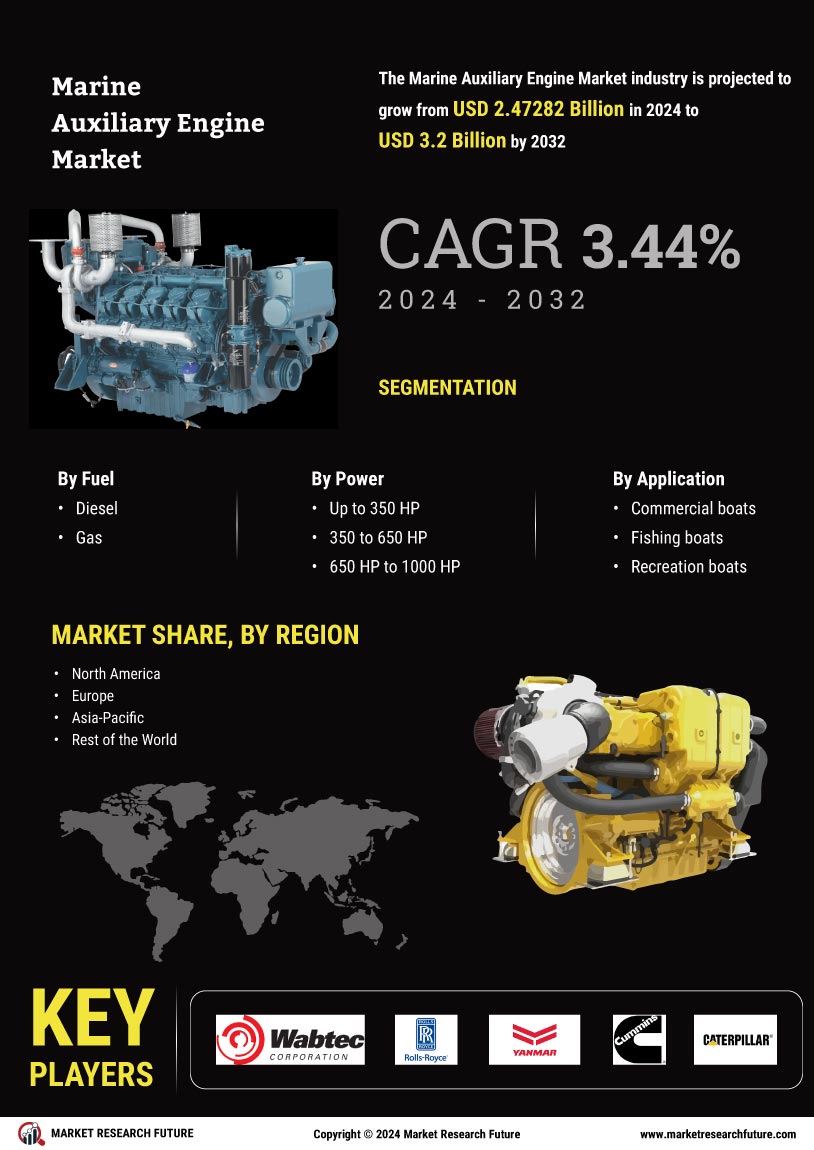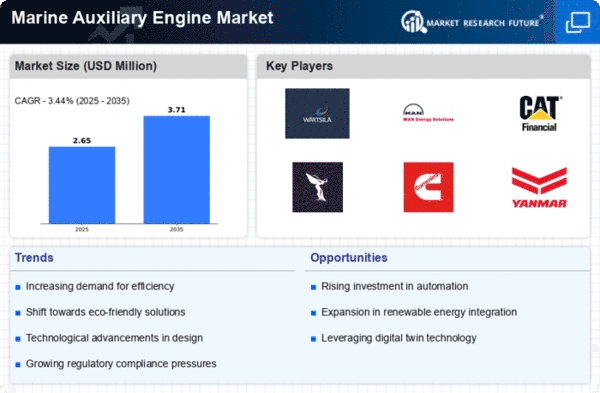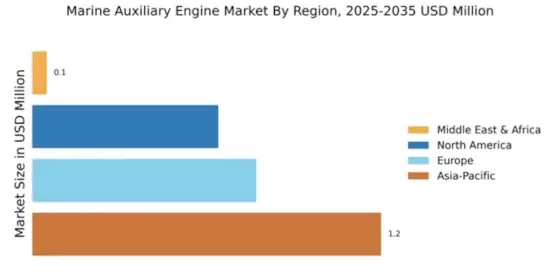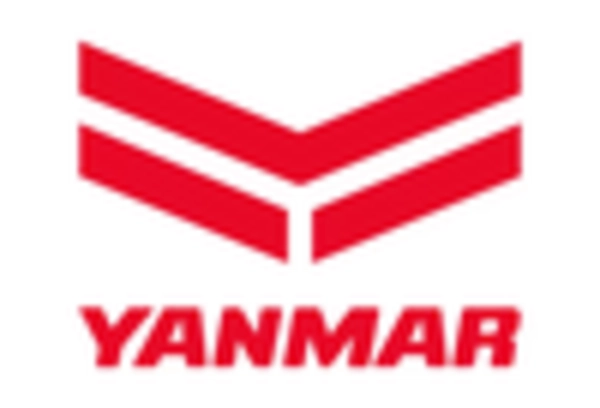Growing Demand for Energy Efficiency
The Global Auxiliary Marine Engine Market Industry is witnessing a growing demand for energy-efficient solutions. As shipping companies strive to reduce operational costs and comply with stringent environmental regulations, the focus on auxiliary engines that optimize fuel consumption becomes paramount. For instance, advancements in engine design and technology have led to engines that can achieve up to 10% better fuel efficiency. This trend is expected to drive the market, with projections indicating that the market could reach 19.2 USD Billion in 2024, reflecting a significant shift towards sustainable practices in maritime operations.
Technological Advancements in Engine Design
Technological advancements play a crucial role in shaping the Global Auxiliary Marine Engine Market Industry. Innovations such as hybrid propulsion systems and digital monitoring tools are enhancing engine performance and reliability. These advancements enable operators to monitor engine health in real-time, thereby reducing downtime and maintenance costs. Furthermore, the integration of artificial intelligence in engine management systems is expected to optimize fuel usage and emissions. As a result, the market is poised for growth, with a projected CAGR of 5.29% from 2025 to 2035, driven by the continuous evolution of engine technologies.
Increasing Focus on Renewable Energy Sources
The Global Auxiliary Marine Engine Market Industry is also being influenced by the increasing focus on renewable energy sources. As the maritime sector seeks to transition towards greener alternatives, there is a growing interest in auxiliary engines that can operate on biofuels and other renewable energy sources. This shift not only aligns with global sustainability goals but also presents new opportunities for manufacturers to innovate. The potential for hybrid systems that combine traditional engines with renewable energy solutions could reshape the market landscape, driving growth and diversification in the auxiliary marine engine sector.
Expansion of Global Trade and Shipping Activities
The Global Auxiliary Marine Engine Market Industry is closely linked to the expansion of global trade and shipping activities. As economies worldwide recover and trade volumes increase, the demand for auxiliary marine engines is expected to rise correspondingly. The growth in container shipping and bulk carriers necessitates reliable auxiliary engines to support various onboard operations. This trend is particularly evident in emerging markets, where infrastructure development is fostering increased shipping activities. Consequently, the market is likely to experience robust growth, with projections indicating a substantial increase in demand for auxiliary engines in the coming years.
Regulatory Compliance and Environmental Standards
The Global Auxiliary Marine Engine Market Industry is significantly influenced by the increasing regulatory compliance requirements imposed by international maritime organizations. These regulations aim to reduce emissions and enhance environmental sustainability. For example, the International Maritime Organization has set ambitious targets for reducing greenhouse gas emissions from ships. Consequently, manufacturers are compelled to innovate and develop auxiliary engines that meet these stringent standards. This regulatory landscape not only drives technological advancements but also expands the market, with expectations that it will grow to 33.9 USD Billion by 2035 as companies invest in compliant solutions.


















